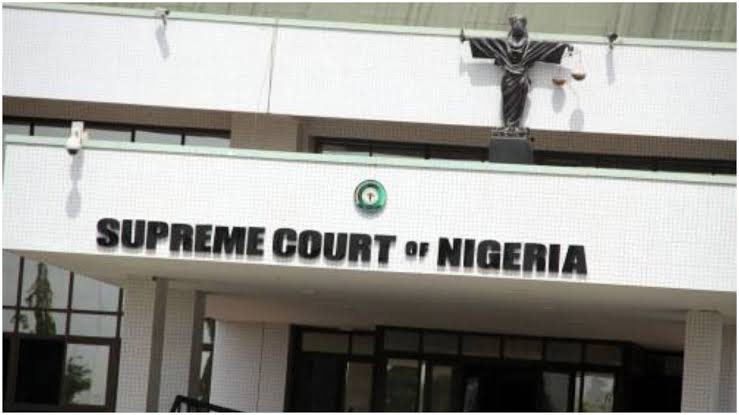The Supreme Court on Friday discharged and acquitted a Nigerian Army Sergeant, Akawu Bala from death sentence imposed on him by the General Court Martial of the Nigerian Army.
Justice Helen Ogunwumiju while delivering judgment in an appeal filled at the Supreme Court on March 16, 2017 by Bala, discharged him from the death penalty.

Respite came the way of the embattled army sergeant when the five-man panel of justices unanimously discharged him after spending 12 years in Kaduna Correctional Centre waiting for ratification of the death sentence passed on him.
The Apex Court rejected the arguments of the army’s lawyer and thereafter ordered the immediate release of the convict from the correctional centre where he had been on remand since 2012.
Ogunwumiju agreed with Reuben Atabo, SAN, counsel to Bala that the Court of Appeal ought to have discharged the accused person having voided his trial and declared it a nullity.
She subsequently invoked section 193 of the Armed Forces Act 2014 and set the convict free adding that the ordinary meaning of section 193 of the Armed Forces Act 2014 is that the accused person can no longer stand another trial.
Bala was accused by the Nigerian Army of shooting one Isa Mohammed on Dec. 9, 2012 when he was attached to African Petroleum Station at Sabon Tasha, Kaduna with AK47 gun.
The victim of the gunshot was said to have died on December 10, 2012 at Saint Gerald’s Catholic Hospital in Kaduna.
Following his indictment, he was put on trial on murder charge punishable under section 106 of the Armed Forces Act 2014 before the General Court Martial on 2-count charge.
He was found guilty of murder and subsequently sentenced to death by hanging.
However, on Feb. 17, 2017, his appeal against the death penalty was upheld by the Court of Appeal, Kaduna division, on the ground that the charge sheet upon which he was tried and convicted was not signed by a General Commanding Officer as required by law.
Justice Obietonbara Kalo who read the Court of Appeal’s lead judgment declared the process of the trial and conviction of the Sergeant as a nullity but however refused to discharge him from the nullified trial, prompting further appeal to Supreme Court.
Bala’s lead Counsel, Atabo, had argued on behalf of the convict that having declared the trial of his client, a nullity, the Court of Appeal ought to have made a consequential order to discharge the accused person from the flawed trial.
He drew the attention of the apex court to section 193 of the Armed Forces Act 2014 which prohibited retrial of any military personnel after his trial has been voided and set aside.






